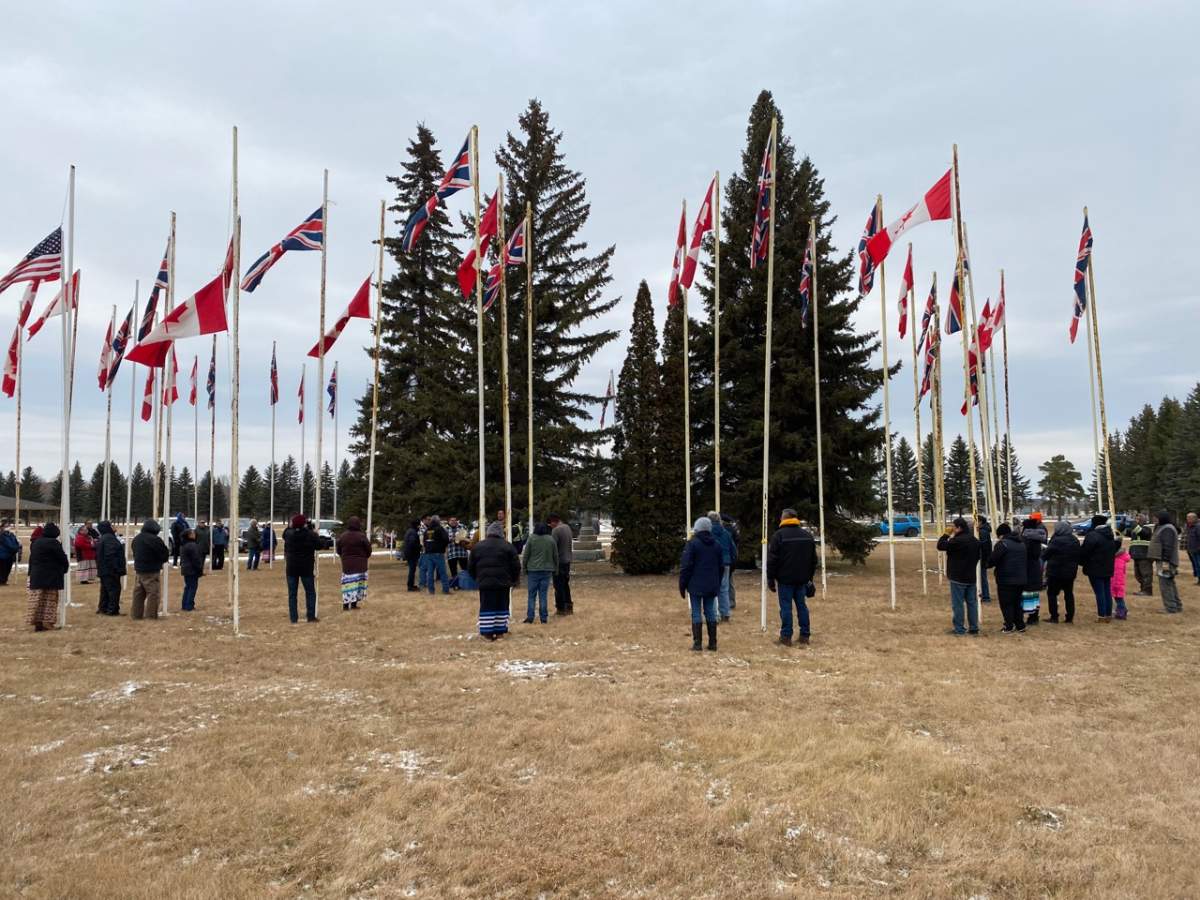The contributions of First Nations, Inuit and Métis people to the Canadian military were honoured across Manitoba Tuesday.

National Indigenous Veterans Day, marked Nov. 8, recognizes the service and sacrifices of Indigenous peoples not only in war, but in Canadian peacekeeping as well.
Manitoba Keewatinowi Okimakanak Grand Chief Garrison Settee said an estimated 12,000 Indigenous veterans served during the 20th century.
“Today we remember contributions of Indigenous veterans in the First and Second World War as well as the Korean War,” he said.

Chief Settee said he would be remembering the sacrifices of his grandfather, who served during the First World War, his uncle, who served in Korea, and two nephews, who served in Iraq and Afghanistan.
In addition to the horrors of combat, Indigenous service members faced challenges many fellow soldiers did not, including racism, language and cultural barriers.
Chief Settee said many Indigenous people had to give up their status to become Canadian citizens before being allowed to enlist, while others never received Veterans Affairs services afforded to others returning from war.
“Many First Nations volunteered despite of the challenges they faced,” he said.
Indigenous veterans brought invaluable skills to the war efforts, Veterans Affairs Canada has said, including expert marksmanship and their languages, which were used to protect secret messages against enemy interception.

Get daily National news
But when they returned home, Indigenous veterans received none of the benefits afforded to other veterans, such as access to loans or free farmland for resettling, according to a 2019 report presented by the House of Commons Standing Committee on Veterans Affairs.
Indigenous Veterans Day wasn’t nationally recognized until 1994, but Settee says ceremonies were being held in Winnipeg before that “because Indigenous veterans were not recognized in Remembrance Day activities.”
Now communities across Canada celebrate the day, Settee noted.
‘We have to remember our veterans’
On Tuesday, community members of all ages came out to hoist flags during a traditional ceremony at Sioux Valley Dakota First Nation, with each flag representing a community member who served and paid the ultimate sacrifice.
Wanbdi Wakita is an elder and veteran who attended Tuesday’s event.
“The big sacrifice those people, those veterans, made,” Wakita told Global News.
“My grandpa told me, ‘Your dad went to war because he treasured his land.’”
Wakita’s father and uncles served in both world wars and in Korea.
Wakita also joined the Army when he was 17, serving in the infantry as a peacekeeper.
“My dad and my uncle, all of those (veterans), I remember them,” he said.
“I even made tapes of them, I have my dad’s letters that he wrote me. It’s good to keep those memories alive.”

Sioux Valley Dakota First Nation resident Avin Dowansa also had family members who served.
“My oldest uncle, he was in the First World War, he lost part of his right arm,” Dowansa said.
“We have to remember our veterans.
“We have to remember them because they were the ones that made it so we’re safe now and not in the war.”
– with files from Elizabeth McSheffrey










Comments
Want to discuss? Please read our Commenting Policy first.